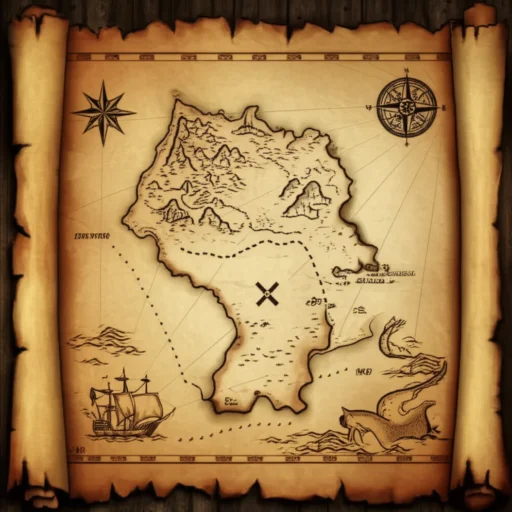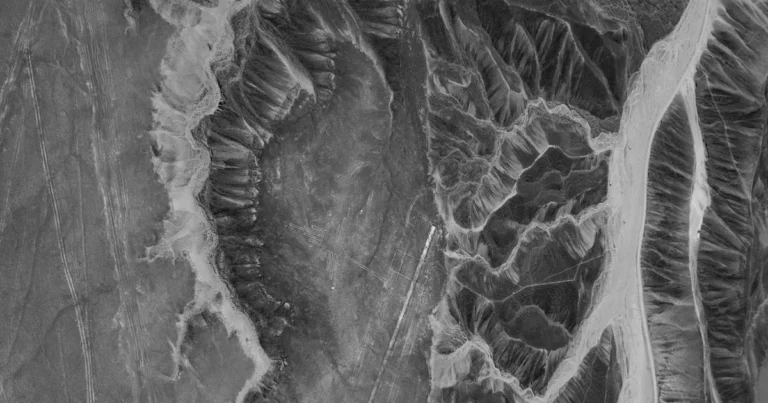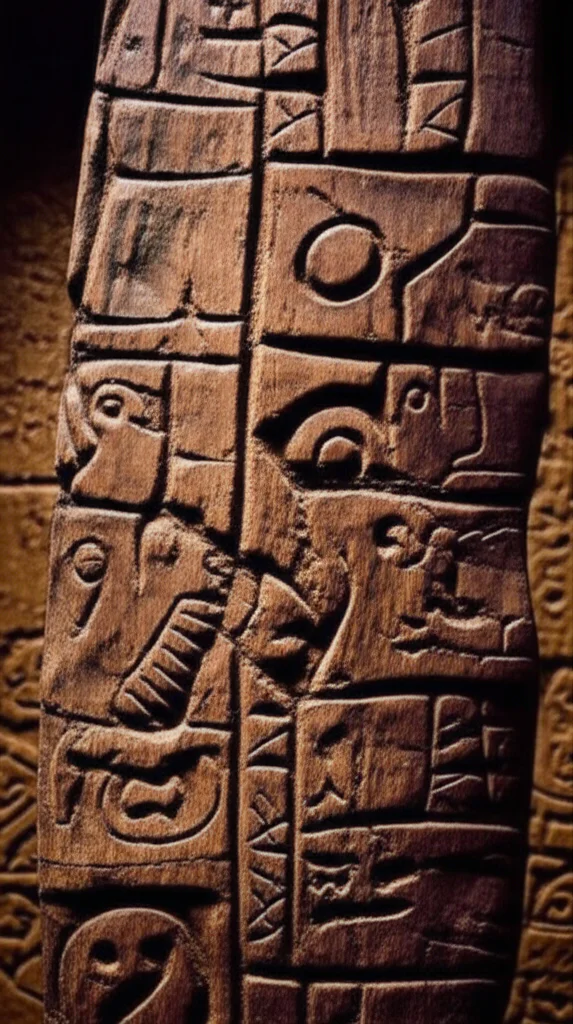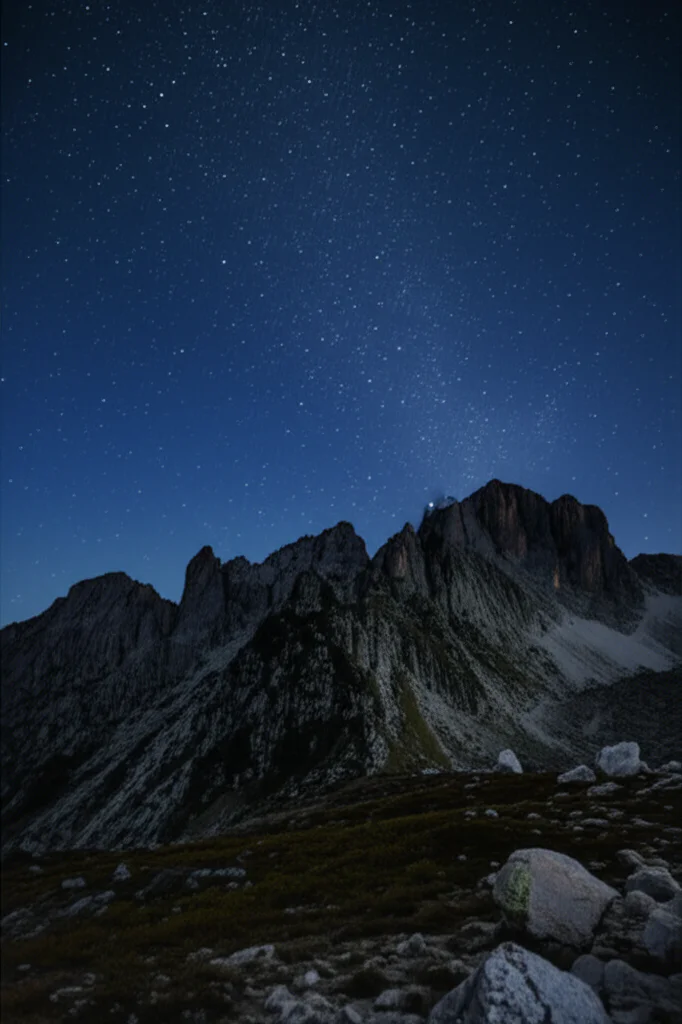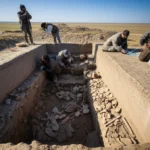Support our educational content for free when you purchase through links on our site. Learn more
Is Atlantis a Real Sunken City? 🌊 Unveiling 9 Fascinating Theories (2025)
For over two millennia, the legend of Atlantis has captivated explorers, historians, and dreamers alike. Is it a real sunken city lost beneath the waves, or merely a philosophical allegory spun by Plato? From ancient Egyptian priests to modern satellite imagery, the mystery refuses to fade. But what if the truth lies not in the depths of the ocean, but in the layers of myth, history, and human imagination?
In this comprehensive dive, we at History Hidden™ unravel 9 of the most compelling location hypotheses, explore Plato’s original dialogues, and dissect the scientific evidence (or lack thereof). We’ll also reveal why Atlantis continues to inspire everything from blockbuster films to occult teachings—and why, despite centuries of searching, it remains elusive. Ready to navigate the swirling tides of fact and fiction? Let’s plunge in!
Key Takeaways
- Atlantis originates solely from Plato’s dialogues, likely as a moral and political allegory rather than a historical account.
- No credible archaeological or geological evidence supports the existence of a sunken continent or city matching Plato’s description.
- The volcanic eruption of Thera (Santorini) is the most plausible real event inspiring the myth.
- Over 9 major location theories exist, ranging from the Azores to the Sahara’s “Eye of the Sahara” structure, but none have been verified.
- Atlantis remains a powerful cultural symbol, influencing literature, film, art, and even spiritual movements.
- The myth endures because it taps into universal human themes: lost paradise, hubris, and the quest for knowledge.
Curious about which Atlantis theory might hold the most water? Or how the myth shaped modern pop culture? Keep reading to uncover the full story!
Table of Contents
- ⚡️ Quick Tips and Facts About Atlantis
- 🌊 The Enigmatic Origins: Atlantis in Ancient Texts and Mythology
- 📜 Plato’s Atlantis: The Original Sunken City Story
- 🔍 7 Compelling Interpretations of Atlantis Through the Ages
- 🗺️ 9 Fascinating Location Hypotheses for the Lost City of Atlantis
- 📚 Literary and Cultural Impact: Atlantis in Books, Movies, and Pop Culture
- 🎨 Artistic Representations: How Atlantis Has Inspired Art and Imagination
- 🧪 Scientific Investigations and Archaeological Searches for Atlantis
- 🌍 Atlantis and Global Mythology: Similar Sunken City Legends Worldwide
- 🕵️♂️ Debunking the Myths: What Experts Say About Atlantis’ Existence
- 🤔 Why Does Atlantis Captivate Us? The Psychology Behind the Myth
- 🧭 Quick Guide: How to Explore Atlantis Theories Like a Pro
- 📝 Conclusion: Is Atlantis a Real Sunken City or Just a Myth?
- 🔗 Recommended Links for Further Atlantis Exploration
- ❓ FAQ: Your Burning Questions About Atlantis Answered
- 📖 Reference Links and Sources for Atlantis Research
Here is the main content for your article, written according to your detailed instructions.
⚡️ Quick Tips and Facts About Atlantis
Welcome, history adventurers! Before we dive deep into the ocean’s mysteries, let’s get our bearings. Here at History Hidden™, we’ve spent countless hours sifting through dusty texts and modern sonar scans for the truth about the legendary sunken city. The story of Atlantis is a wild ride, so here are the essential tidbits to keep in your back pocket.
| Factoid 💡 | The Lowdown 👇 –
| Sole Source | The only original ancient source for Atlantis is the Greek philosopher Plato. No other contemporary texts mention it. –
| Fictional Origin | Most modern scholars and historians agree: Atlantis was a fictional invention by Plato. As Discover Magazine puts it, “Unfortunately, the answer is no” when asking if it’s real. –
| Allegorical Purpose | Plato likely used the story as a moral allegory or thought experiment to explore themes of power, corruption, and the ideal state. –
| Geologically Impossible | The idea of a large continent sinking in the Atlantic Ocean contradicts our modern understanding of plate tectonics. –
| Inspiration vs. Reality | Some theories suggest a real event, like the massive volcanic eruption on the island of Thera (Santorini) around 1600 BCE, may have inspired the story. –
🌊 The Enigmatic Origins: Atlantis in Ancient Texts and Mythology
So, where did this incredible story even come from? If you search for Atlantis in historical records, you’ll find the trail begins and ends with one man: the ancient Greek philosopher Plato. That’s it. No epic poems from Homer, no scrolls in the Library of Alexandria, no mentions in Herodotus’s Histories. This is a crucial starting point.
Many ancient tales are part of a rich tapestry of Mythology Stories, passed down through generations. But Atlantis is different. It appears, fully formed, in two of Plato’s dialogues, Timaeus and Critias, written around 360 BCE. This lack of corroborating sources is the single biggest red flag for historians like us. It’s like finding a single, unverified document describing a secret fourth pyramid at Giza—extraordinary claims require extraordinary evidence, and for Atlantis, the paper trail is mighty thin.
📜 Plato’s Atlantis: The Original Sunken City Story
Alright, let’s get to the source material! Imagine sitting in an Athenian agora, listening to Plato spin a yarn. He claims the story came from the wise Athenian statesman Solon, who heard it from Egyptian priests. A story within a story—a classic literary device!
According to Plato, this all happened “more than 9,000 years before his time.” He describes a magnificent island nation located “beyond the Pillars of Hercules” (what we now call the Strait of Gibraltar).
The Utopian Island Kingdom
This wasn’t just any island. Plato paints a picture of a paradise, a true utopia.
- Divine Origins: The god of the sea, Poseidon, was given the island of Atlantis. He fell for a mortal woman, Cleito, and to protect her, he broke the island into concentric rings of land and water.
- Royal Lineage: Poseidon and Cleito had five pairs of twin sons. The eldest, Atlas, became the first king, and the entire island and the surrounding Atlantic Ocean were named after him.
- Incredible Riches: The island was a powerhouse of natural resources. It had precious metals, including the mysterious orichalcum, which Plato described as second only to gold in value. Elephants roamed its plains, and crops grew in abundance.
- Advanced Engineering: The city itself was an architectural marvel, with massive canals, bridges, and temples. The Atlanteans were masters of engineering and construction.
Hubris and Downfall
But, as with all great Greek tragedies, pride comes before the fall. The Atlanteans, once noble and virtuous, became corrupted by greed and power. They launched a massive naval campaign to conquer the Mediterranean, subjugating parts of Europe and Libya.
Their final target was Athens. But the ancient Athenians, representing Plato’s ideal, virtuous state, single-handedly fought back and defeated the mighty Atlantean empire. And then, disaster struck. In “a single day and night of misfortune,” violent earthquakes and floods consumed the island, and Atlantis “disappeared in the depths of the sea.” A dramatic end to a dramatic tale! But was it history or a lesson?
🔍 7 Compelling Interpretations of Atlantis Through the Ages
The story of Atlantis is like a historical Rorschach test—what you see in it says a lot about you and your era. Over the centuries, the interpretations have been as wild and varied as the myth itself.
- A Philosophical Allegory (The Academic View): Most classicists and historians believe Plato never intended for the story to be taken literally. Plato scholar Julia Annas states he used it as a “standard device of fiction.” It was a cautionary tale: the story of the hubristic, powerful, and corrupt Atlanteans versus the small, virtuous, and ideal Athens was a brilliant way for Plato to explore his political philosophies.
- A Distorted Historical Memory (The Thera Theory): This is perhaps the most popular “realist” theory. Around 1600 BCE, the volcanic island of Thera (modern-day Santorini) in the Aegean Sea erupted with unimaginable force. The explosion and subsequent tsunamis wiped out the advanced Minoan civilization on the nearby island of Crete. Could the memory of this real-life cataclysm have been passed down for over a thousand years, eventually reaching Plato and inspiring his story? It’s a compelling idea, even if the details (location, timeframe) don’t quite match.
- A Factual Historical Account (The Ancient Believers): Not everyone in the ancient world dismissed the story. The philosopher Crantor, a student of one of Plato’s students, is said to have believed the story was historical fact, claiming to have seen Egyptian columns inscribed with the tale. However, the evidence for this is secondhand and heavily debated among scholars.
- A Lost “Mother” Civilization (The Donnelly Revolution): Fast forward to 1882. A former U.S. Congressman named Ignatius L. Donnelly published Atlantis: The Antediluvian World, and the modern Atlantis craze was born. He argued that Atlantis was a real place, the origin of all major ancient civilizations (Egyptian, Mayan, etc.), and was destroyed in the Great Flood. His book was a sensation, mixing pseudo-science with genuine archaeological findings to create a powerful narrative that still influences theories today.
- An Occult and Mystical Land (The Spiritualists): In the late 19th and early 20th centuries, occult and theosophical movements embraced Atlantis. Figures like Helena Blavatsky and the “sleeping prophet” Edgar Cayce claimed to have psychic knowledge of Atlantis. They described it as a land of highly evolved spiritual beings with advanced crystal technology, whose reincarnated souls live among us today.
- A Tool for Vile Ideology (The Nazi Connection): This is the darkest chapter in the Atlantis story. As the featured video on historical maps explains, pseudo-scientific ideas about lost civilizations can be incredibly dangerous. Nazi ideologue Heinrich Himmler became obsessed with finding Atlantis, believing it to be the homeland of the “Aryan race.” He funded expeditions to places like Tibet, hoping to find proof of a superior ancient civilization to justify his horrific racial theories.
- A Sci-Fi Trope (The Modern Myth): Today, Atlantis is a cornerstone of science fiction and fantasy. It’s often depicted as a hyper-advanced, sometimes alien, civilization with futuristic technology. This interpretation sheds the historical baggage and embraces the pure imaginative power of the story.
🗺️ 9 Fascinating Location Hypotheses for the Lost City of Atlantis
If you were to go looking for Atlantis, where would you even start? The list of proposed locations is long and global. Let’s take a quick world tour of the most talked-about candidates.
- Santorini (Thera), Greece: As mentioned, this is the leading candidate for a historical inspiration. The volcanic destruction of the Minoan civilization here has all the dramatic elements of the Atlantis story. ✅ Plausible inspiration, ❌ Wrong location and time according to Plato.
- The Strait of Gibraltar: This is where Plato said it was: “beyond the Pillars of Hercules.” A 2001 discovery of a submerged island-like feature called Spartel Bank got people excited, but geological studies showed it last saw daylight long before humans could have built a city on it.
- The Richat Structure, Mauritania: Known as the “Eye of the Sahara,” this massive geological formation of concentric rings looks uncannily like Plato’s description of the capital city. It’s visually stunning, but geologists confirm it’s a natural formation (a geologic dome) that has never been submerged.
- Andalusia, Spain: In 2011, a U.S.-led research team claimed to have found evidence of a city swamped by a tsunami in the mud flats north of Cadiz, Spain. They used satellite imagery and ground-penetrating radar to identify what they believed were remnants of a city that matched Plato’s description. However, their findings have been met with significant skepticism from the wider archaeological community.
- The Azores: These volcanic islands in the middle of the Atlantic seem like a perfect fit. Some theorists, like Donnelly, believed they are the mountaintops of the sunken continent. Modern oceanography, however, shows they are the peaks of massive underwater volcanoes, not a sunken landmass.
- The Caribbean (Bimini Road): Off the coast of the Bahamas lies an underwater rock formation known as the Bimini Road. For decades, believers have claimed it’s a remnant of an Atlantean road or wall. The overwhelming scientific consensus is that it’s a natural geological feature known as beachrock.
- Antarctica: This theory posits that a pole shift caused Antarctica to move to its current location, freezing a once-temperate Atlantean civilization under miles of ice. This idea is based on speculative interpretations of old maps and has no scientific support.
- Doggerland (North Sea): There was a real land bridge connecting Great Britain to mainland Europe that sank beneath the waves around 6,500 BCE. We call it Doggerland. While it’s a genuine “sunken land,” it was inhabited by Mesolithic hunter-gatherers, not a bronze-age super-civilization.
- South America: Some 19th and 20th-century theorists pointed to the incredible ruins of Tiwanaku and Puma Punku in Bolivia as evidence of a lost, advanced civilization, possibly linked to Atlantis. While these sites are genuinely ancient and mysterious, they are located high in the Andes mountains, not on a sunken island.
📚 Literary and Cultural Impact: Atlantis in Books, Movies, and Pop Culture
Whether real or not, Atlantis has left an indelible mark on our culture. It’s the ultimate lost world, a symbol of technological marvels and tragic downfall. We’ve been obsessed with it for centuries!
- In Literature: Jules Verne took us to the ruins of Atlantis in his 1870 classic 20,000 Leagues Under the Seas. It has since appeared in countless fantasy and sci-fi novels, becoming a go-to setting for adventure and mystery.
- On the Big Screen: Who could forget Disney’s animated adventure Atlantis: The Lost Empire? It perfectly captured the pulp-adventure spirit associated with the myth. More recently, the DC Extended Universe has brought Atlantis to life as the spectacular underwater kingdom of Aquaman, ruled from the throne of Atlantis.
- In Gaming: Gamers have been exploring digital versions of the sunken city for decades. The classic 1992 point-and-click adventure Indiana Jones and the Fate of Atlantis is a fan favorite. The city and its mythology have also played roles in blockbuster series like God of War and Assassin’s Creed.
Atlantis has become a cultural shorthand. It represents the tantalizing idea that a better, more advanced world once existed and that its secrets might still be waiting to be rediscovered.
🎨 Artistic Representations: How Atlantis Has Inspired Art and Imagination
Long before CGI could render glittering underwater cities, artists were trying to capture Atlantis on canvas. From 19th-century Romantic paintings depicting the cataclysm to early 20th-century pulp magazine covers, the imagery of Atlantis has always been dramatic and awe-inspiring.
A fascinating and cautionary example of this is the work of William Scott-Elliot. As detailed in the featured video on this topic, Scott-Elliot was an amateur cartographer in the late 1800s who, using a mix of early geological theories and “spiritual clairvoyance,” created a series of maps showing Atlantis over millions of years. These maps, while beautifully illustrated, are a prime example of pseudo-science “clothed in scientific language and images.” They look real, they feel authoritative, but they are ultimately works of fiction that, as we’ve seen, can be co-opted for dangerous ideologies.
🧪 Scientific Investigations and Archaeological Searches for Atlantis
So, with all this speculation, what does hard science have to say? Well, this is where the dream of a real Atlantis runs into a wall of geological and archaeological reality.
The Geological Verdict: ❌
The theory of plate tectonics, solidified in the 1960s, is the biggest hurdle for a literal Atlantis. Continents don’t just sink. The Earth’s crust is made of massive plates that drift slowly over millions of years. A large landmass like the one Plato described can’t just vanish in the middle of the Atlantic Ocean. As one of our geologist friends likes to say, “You have a better chance of finding a unicorn than a sunken continent.”
The Archaeological Verdict: ❌
For over a century, explorers, archaeologists (both professional and amateur), and adventurers have searched for Atlantis. They’ve used everything from deep-sea submersibles to satellite imagery. The result? Nothing. Not a single artifact, inscription, or ruin has ever been found that can be credibly linked to Plato’s Atlantis. As Discover Magazine bluntly states, “No concrete evidence of Atlantis has ever been found.”
While searches in places like Spain and Greece have uncovered fascinating ancient sites, none match the age, scale, or location described by Plato. The physical evidence simply isn’t there.
🌍 Atlantis and Global Mythology: Similar Sunken City Legends Worldwide
One of the most fascinating things we’ve discovered at History Hidden™ is that Atlantis is not alone! The idea of a land lost to the waves is a powerful and recurring theme in human Folklore and Legends. This suggests it might be a universal human archetype, a way of grappling with natural disasters, the loss of the past, and the impermanence of life.
- Kumari Kandam: Ancient Tamil legends from Southern India speak of a lost continent, a cradle of civilization that was swallowed by the ocean.
- Ys: A legend from Brittany, France, tells of a beautiful city built below sea level, protected by a dike. When the king’s wicked daughter opened the gates, the city was completely submerged.
- Cantre’r Gwaelod: Welsh folklore describes a sunken kingdom in what is now Cardigan Bay, lost to the sea when its drunken watchman failed to close the floodgates.
The existence of these parallel myths doesn’t prove Atlantis was real. Instead, it shows that the story Plato told tapped into a deep, universal human fear and fascination with the power of the ocean and the fragility of civilization.
🕵️♂️ Debunking the Myths: What Experts Say About Atlantis’ Existence
Let’s cut to the chase. When you gather the world’s leading classicists, historians, and archaeologists in a room, the consensus is overwhelming.
The story of Atlantis is a myth.
Archaeologist Kenneth Feder notes that Plato’s own narrative structure, presenting the story through multiple layers of hearsay (from Critias, who heard it from his grandfather, who heard it from Solon, who heard it from priests), is a classic sign that it’s “an invention of his fancy.” It’s a literary technique, not a historical citation.
Here’s a simple breakdown of the expert consensus:
- ✅ Did Plato write about a city called Atlantis? Absolutely. It’s the foundational text.
- ❌ Is there any physical, archaeological evidence of Atlantis? None whatsoever.
- ✅ Was the story likely an allegory for Plato’s philosophical ideas? Yes, this is the most widely accepted scholarly interpretation.
- ❌ Could a continent-sized island sink in the Atlantic in a single day? No, this is geologically impossible according to our understanding of plate tectonics.
🤔 Why Does Atlantis Captivate Us? The Psychology Behind the Myth
So, if all the evidence points to “no,” why are we still so obsessed with Atlantis? Why does this story refuse to sink? This is the question that truly fascinates us as historians of the hidden.
The answer, we believe, lies in the human heart.
- The Lure of a Golden Age: The story of Atlantis is the ultimate tale of a lost paradise. It speaks to a deep-seated desire to believe that humanity was once better, wiser, and more advanced. In a complex modern world, the idea of a perfect society lost to time is incredibly appealing.
- The Thrill of the Unknown: We are explorers by nature. The idea that a great mystery remains unsolved, that a lost city filled with treasure and ancient wisdom is just waiting to be found, is an irresistible call to adventure.
- A Mirror for Our Own Anxieties: The story of a civilization that became too proud, too powerful, and was wiped out in a cataclysm… sound familiar? The Atlantis myth serves as a powerful cautionary tale, reflecting our own anxieties about climate change, war, and societal collapse. It asks us: are we heading for our own “Atlantis” moment?
Ultimately, the question of whether Atlantis is a real sunken city might be the wrong one to ask. The more interesting question is why we’ve kept its memory alive for over 2,400 years. The legend of Atlantis isn’t really about a place; it’s about us. It’s a story about our hopes, our fears, and our endless search for meaning in the echoes of the past.
🧭 Quick Guide: How to Explore Atlantis Theories Like a Pro
Ready to do your own deep dive? It’s a fascinating rabbit hole, but it’s easy to get lost. Here’s our team’s quick guide to thinking critically about any Atlantis theory you encounter.
- Check the Source: Does the theory originate from an archaeologist, a geologist, or a psychic channeler? Always consider the source’s credentials and potential biases.
- Follow the Evidence: Look for verifiable data. Does the theory rely on sonar maps, archaeological finds, and peer-reviewed studies, or does it lean on “ancient maps” of dubious origin and speculative connections?
- Ask “Who Benefits?”: Is someone selling a book, a documentary, or “ancient Atlantean crystals”? Be wary of theories that have a strong commercial component.
- Understand Occam’s Razor: This principle suggests that the simplest explanation is often the best. Is it more likely that a continent sank without a trace, defying all known laws of geology, or that one of history’s greatest philosophers invented a story to make a point?
- Have Fun, But Stay Grounded: It’s okay to enjoy the “what if” of it all! The story is a masterpiece of imagination. Just be sure to distinguish between fun speculation and historical fact.
📝 Conclusion: Is Atlantis a Real Sunken City or Just a Myth?
After navigating the swirling currents of history, myth, geology, and popular culture, what can we say about Atlantis? Is it a real sunken city lost beneath the waves, or a captivating myth that has captured human imagination for millennia?
Our expert verdict at History Hidden™: Atlantis is best understood as a literary and philosophical invention by Plato, crafted to explore themes of power, hubris, and ideal society. While inspired perhaps by real events—like the volcanic destruction of Thera—the story itself is not a factual account of a vanished civilization.
Despite centuries of speculation, no credible archaeological or geological evidence supports the existence of a sunken continent or city matching Plato’s description. The geological impossibility of a continent-sized island sinking suddenly, combined with the absence of any physical remains, firmly places Atlantis in the realm of myth.
Yet, this does not diminish its power or significance. Atlantis remains a timeless symbol—a cautionary tale about human ambition, a beacon for explorers and dreamers, and a cultural touchstone inspiring art, literature, and film.
So, while you won’t find Atlantis on any nautical charts, you will find it alive and well in the stories we tell, the mysteries we chase, and the dreams that refuse to sink.
🔗 Recommended Links for Further Atlantis Exploration
Ready to dive deeper? Here are some top-rated books and resources to fuel your Atlantis adventure:
-
Ignatius L. Donnelly – Atlantis: The Antediluvian World
The classic 1882 book that launched modern Atlantis fascination.
👉 Shop on: Amazon | Barnes & Noble -
Kenneth Feder – Frauds, Myths, and Mysteries: Science and Pseudoscience in Archaeology
A critical look at Atlantis and other archaeological myths.
👉 Shop on: Amazon | Book Depository -
Plato – Timaeus & Critias (translated by Benjamin Jowett)
The original dialogues where Atlantis was first described.
👉 Shop on: Amazon | Project Gutenberg (free) -
Edgar Cayce Readings on Atlantis
Explore the mystical side of Atlantis through the “sleeping prophet.”
👉 Shop on: Amazon
❓ FAQ: Your Burning Questions About Atlantis Answered
What evidence supports the existence of Atlantis?
No archaeological or geological evidence conclusively supports Atlantis as a real sunken city. The story exists solely in Plato’s dialogues, with no corroborating ancient texts or physical artifacts. Modern science, especially plate tectonics, contradicts the possibility of a continent-sized island sinking suddenly in the Atlantic.
Read more about “The Bimini Road Atlantis Mystery: Uncovering the Truth in 2025 🧩”
Where is the supposed location of Atlantis?
Plato described Atlantis as lying beyond the Pillars of Hercules (the Strait of Gibraltar). Over time, dozens of locations have been proposed, including:
- Santorini (Thera), Greece
- The Azores Islands
- The Richat Structure in Mauritania
- Mud flats near Cadiz, Spain
- The Caribbean (Bimini Road)
- Doggerland in the North Sea
None have been verified as Atlantis, and many contradict Plato’s descriptions or geological facts.
Read more about “Where Is the Lost City of Atlantis Located? 12 Theories Explored 🌊”
Who first wrote about the city of Atlantis?
The first and only ancient source is the Greek philosopher Plato, who wrote about Atlantis in his dialogues Timaeus and Critias around 360 BCE. He claimed the story was passed down from the Athenian lawmaker Solon, who allegedly heard it from Egyptian priests.
Read more about “The Lost City of Atlantis: 10 Fascinating Theories Explored 🌊 …”
Is Atlantis based on a real historical event?
Atlantis is widely considered a philosophical allegory rather than a historical account. However, some scholars suggest that the story may have been inspired by real events, such as the catastrophic volcanic eruption of Thera (Santorini) around 1600 BCE, which devastated the Minoan civilization.
Have any underwater ruins been found that could be Atlantis?
Despite many underwater explorations, including sonar mapping and diving expeditions, no ruins matching Atlantis have been discovered. Features like the Bimini Road are natural formations, and proposed sites like Spartel Bank have been geologically dated to times incompatible with human civilization.
Read more about “The Lost Continent of Mu: 7 Mysteries Unveiled in 2025 🌊”
What theories explain the disappearance of Atlantis?
According to Plato, Atlantis sank due to violent earthquakes and floods in a single day and night. Modern theories link this to natural disasters such as volcanic eruptions and tsunamis (e.g., Thera eruption). However, no scientific evidence supports a continent-sized island disappearing suddenly.
Read more about “Unraveling 10 Mind-Blowing Knights Templar Secrets 🤫 …”
How has the legend of Atlantis influenced modern culture?
Atlantis has inspired:
- Literature: From Jules Verne to modern fantasy novels
- Film and TV: Disney’s Atlantis: The Lost Empire, DC’s Aquaman
- Video Games: Indiana Jones and the Fate of Atlantis, God of War
- Occult and New Age beliefs: Mystical interpretations by Edgar Cayce and Helena Blavatsky
It symbolizes lost knowledge, utopia, and the dangers of hubris, continuing to captivate imaginations worldwide.
📖 Reference Links and Sources for Atlantis Research
For those who want to verify facts and explore further, here are some reputable sources:
- Atlantis – Wikipedia — Comprehensive overview with historical and modern perspectives.
- Is the Sunken City of Atlantis Real? – Science ABC — A science-based look at the myth and theories.
- Where Is the Lost City of Atlantis and Does It Even Exist? – Discover Magazine — Expert analysis and debunking of Atlantis myths.
- Project Gutenberg – Plato’s Timaeus and Critias — Free access to the original texts.
- Amazon – Books on Atlantis — For further reading and exploration.
We hope this deep dive into Atlantis has both satisfied your curiosity and sparked new questions. After all, the greatest mysteries are those that keep us searching—and Atlantis is the grandest mystery of them all! 🌊✨
